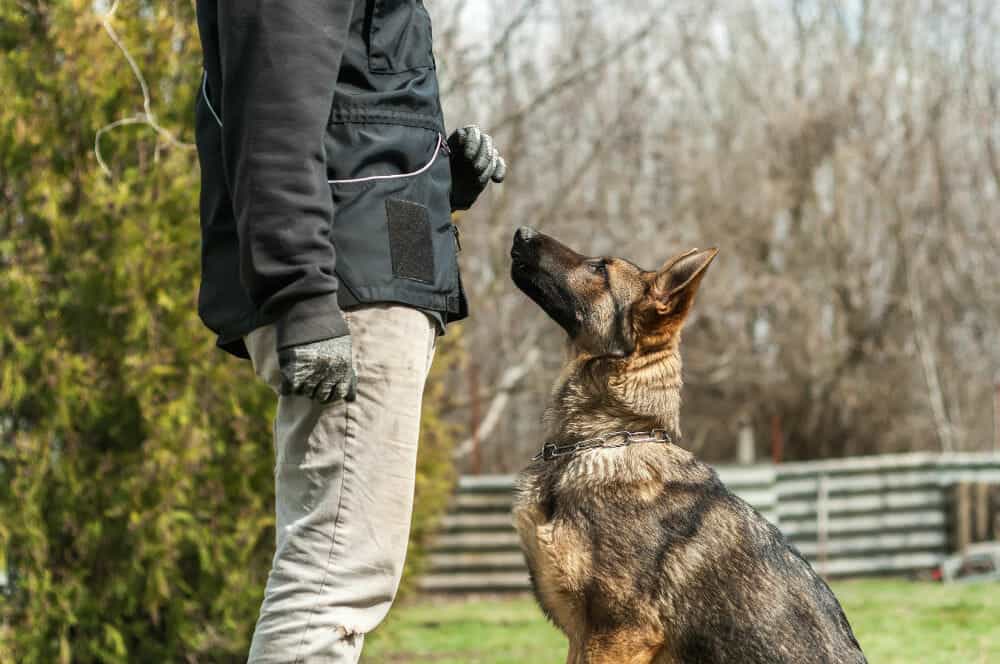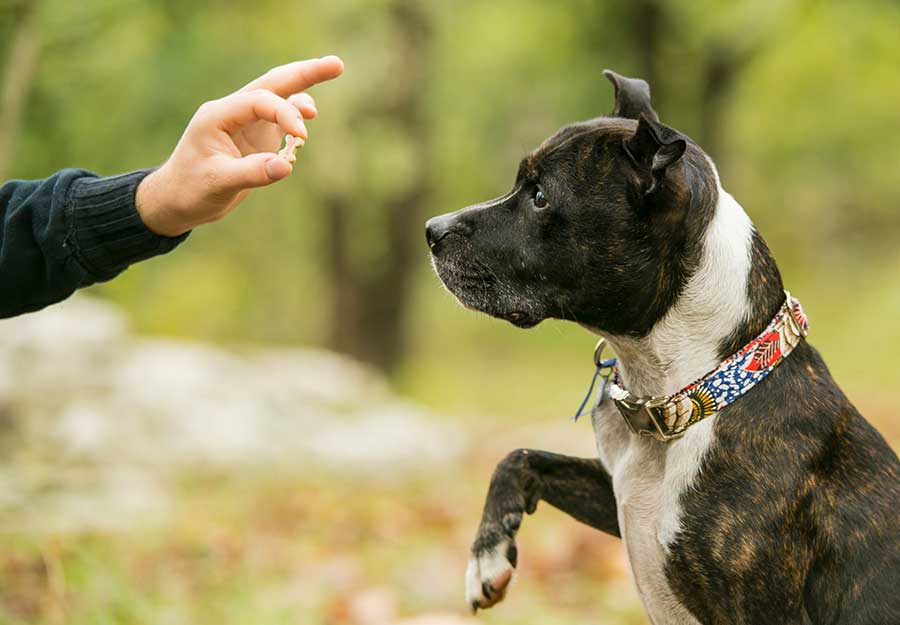Unlock the Keys of Reliable Dog Training Near Me for a Happier Pet
Unlock the Keys of Reliable Dog Training Near Me for a Happier Pet
Blog Article
Unlock Your Canine's Potential: Proven Pet Dog Training Strategies for Success
Efficient pet dog training is a nuanced process that rests on comprehending canine habits and utilizing clinically backed methods. Dog training. By incorporating favorable support, developing clear commands, and focusing on socializing, canine owners can cultivate an efficient relationship with their animals. Difficulties frequently arise that need tailored remedies and a client method. Exploring these shown approaches discloses not just the potential for behavioral improvement yet also the much deeper bond that can be created in between proprietor and dog. What crucial approaches must be considered to truly open your canine's capacity?
Recognizing Dog Behavior
Understanding canine behavior is crucial for efficient training and cultivating a positive connection in between pets and their proprietors. An extensive grasp of canine body language, vocalizations, and social interactions is critical for identifying their needs and emotions. Pet dogs connect mostly through non-verbal hints; as an example, a wagging tail may indicate enjoyment, while pinned ears can signify anxiety or entry.

Additionally, ecological variables play a considerable function in forming a pet dog's behavior. Adjustments in regular, new surroundings, or the visibility of unfamiliar people can cause anxiety or anxiety in canines. Identifying these triggers allows proprietors to minimize damaging responses and develop proper training methods.
Inevitably, a deep understanding of dog behavior lays the structure for successful training methods, improving both habits and the total bond between the pet dog and its owner. Dog training. This understanding is indispensable for promoting a well-adjusted, delighted canine companion
Favorable Reinforcement Methods
Efficient training counts heavily on favorable support techniques, which have been revealed to produce considerable cause shaping wanted actions in pets. This strategy involves awarding a canine for exhibiting specific habits, thus boosting the chance that these actions will certainly be repeated. Incentives can take various forms, consisting of deals with, appreciation, toys, or playtime, depending upon what motivates the specific canine.

It is important to progressively terminate benefits as the pet dog finds out the behavior, transitioning to recurring reinforcement. This method keeps the behavior with time while avoiding dependency on continuous incentives. By concentrating on favorable reinforcement, trainers can grow a relying on relationship with their pets, advertising a healthy and balanced and participating training setting that boosts general obedience and efficiency.
Establishing Consistent Commands
An essential element of effective dog training is the establishment of consistent commands. Consistency in commands is vital for efficient interaction between the trainer and the pet. When commands are consistent, pet dogs discover to associate details words with wanted habits, which speeds up the training procedure and boosts understanding.
To establish constant commands, it is important that all relative make use of the very same terminology and gestures. If one individual uses "rest" while an additional says "sit down," it can create confusion for the pet. Select clear, distinct words for commands and make certain everyone associated with the pet dog's training sticks to these selections.
Furthermore, repetition is key. Strengthen commands via regular practice, making sure that the pet gets official website ample possibilities to react appropriately. When a pet dog effectively complies with a command, prompt favorable support must follow. This might be in the kind of deals with, praise, or play, strengthening the link in between the command and the action.
Last but not least, be person. Establishing regular commands takes time and effort. With dedication and quality, you will assist your pet develop a solid understanding of expectations, eventually resulting in a well-behaved friend.
Socialization and Exposure
Socializing a dog is important for promoting a confident and well-adjusted companion. This procedure entails revealing your pet dog to a range of environments, people, and various other pets to establish their social skills and adaptability. Early socializing, preferably between the ages of three to fourteen weeks, is crucial, as it lays the groundwork for a pet's future habits.
During socialization, purpose to give positive experiences in different setups, such as parks, hectic streets, and homes with various image source other family pets. Introduce your dog to numerous stimulations, including audios, views, and smells, making certain that each experience is gratifying. This exposure aids reduce fear and anxiousness, paving the way for an extra resilient pet.
Involving in controlled team play sessions with various other dogs can additionally enhance social skills, educating your pet proper communications and boundaries. Prioritizing socializing will significantly contribute to your pet dog's total happiness and behavior throughout their life.
Overcoming Common Educating Obstacles

Canines may battle to concentrate in unknown or active setups. Gradually desensitize your canine to diversions by beginning training in a silent environment and slowly introducing even more stimuli as they end up being competent.
In addition, behavioral concerns like jumping or extreme barking can become discouraging. Address these by teaching alternate behaviors, such as sitting steadly when greeting visitors. Uniformity and persistence are critical; strengthen wanted behaviors constantly and stay clear of scolding, which can cause complication.
Lastly, acknowledge that each pet is distinct, and training timelines might differ. Tailor your method to your pet's individual requirements, and look for specialist find more information guidance if required. With willpower and the right techniques, getting rid of these obstacles can result in a well-trained, delighted canine friend.
Verdict
In conclusion, unlocking a pet dog's possible demands a comprehensive approach that integrates an understanding of canine habits, the application of favorable support strategies, and the facility of regular commands. Early socializing and exposure to diverse environments even more improve a pet dog's versatility and self-confidence. By resolving usual training obstacles with customized approaches and perseverance, a unified and participating connection in between pet dog and handler can be promoted, ultimately resulting in a well-behaved companion qualified of growing in numerous scenarios.
Efficient pet dog training is a nuanced process that hinges on understanding canine actions and using medically backed methods.Comprehending canine behavior is essential for reliable training and cultivating a positive relationship in between pet dogs and their owners.Effective training relies heavily on favorable reinforcement methods, which have actually been shown to produce substantial outcomes in forming wanted habits in pet dogs. When commands are uniform, pet dogs learn to connect particular words with desired actions, which speeds up the training process and enhances understanding.
In verdict, unlocking a pet's potential demands a thorough strategy that incorporates an understanding of canine habits, the application of favorable reinforcement techniques, and the facility of regular commands.
Report this page